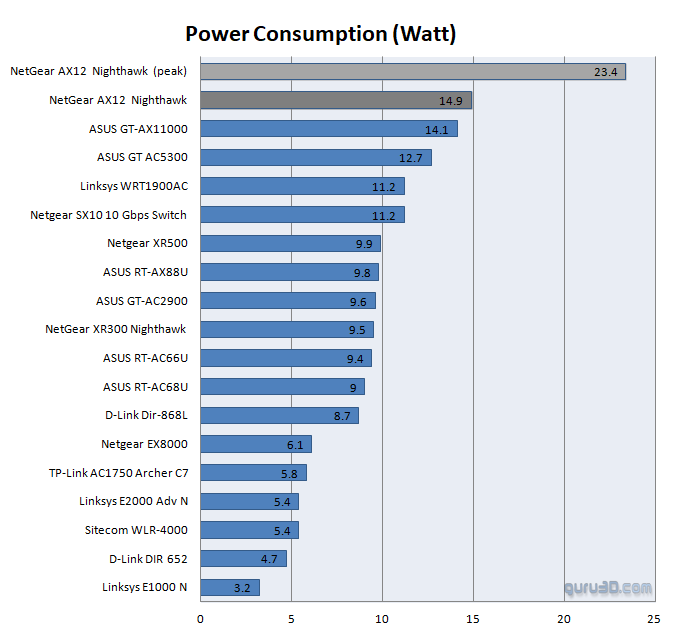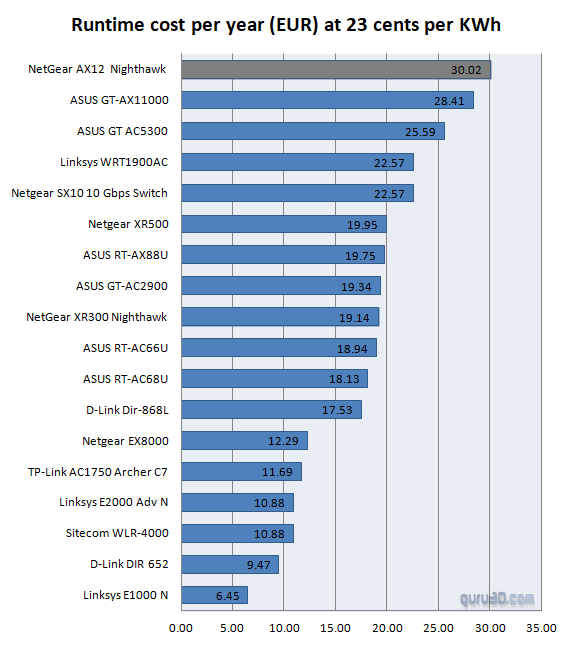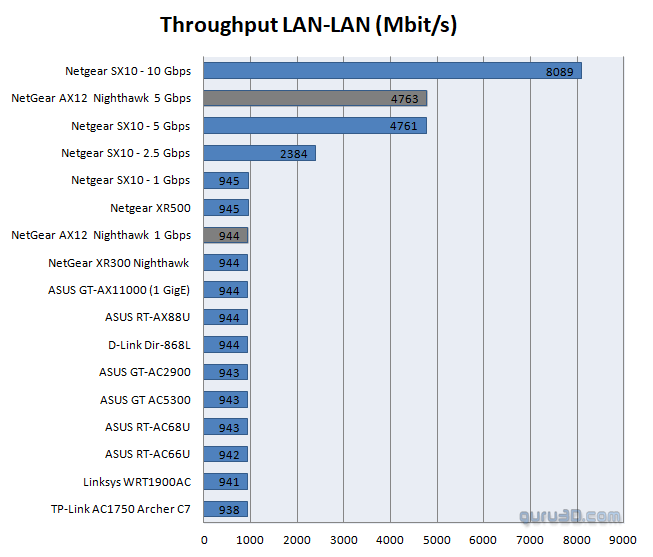Power Consumption, USB3 and Wired performance
Power Consumption
Power consumption among others. It's a hot topic these days and, well, we measure using a 10M distance setup, meaning we test with an active WIFI link (the throughput test). We measure this at the wall socket side with the help of a power monitor which can measure to a tenth of a Watt accuracy. This device measures in-between the wall socket and router.
Above, power consumption, while we transmit from the laptop to a client-side PC. Wireless is obviously one of the more power consuming features to use. At average with a bit of connectivity, you'll be looking at 15 Watts continuous power consumption. That is on the high side and something we see with the recent AX routers. However, if we apply a throughput test on the router, the power consumption jumps towards 23.4 Watts. To that is roughly your peak power consumption value.
At 23 cents per kWh, this adds roughly 30 bucks per year on your power bill. The measurement is an average.
USB Performance
With the help of USB 3.1/3.2, you get fast storage on the router. Since the router allows you to share the files on external storage, the router basically functions as a NAS. Handy for UPnP needs and such. So we figured it would be nice to observe how fast USB 3.2 is on these routers:
The performance is pretty good. Please keep in mind that we linked the router over a 5 Gbit/s ethernet connection. Typically you'll have a 1 Gbps connection, in that scenario, your performance will be limited by the maximum throughput of your Ethernet jack, which would be roughly 120 MB up and downstream.
A LAN-to-LAN network test reveals close to full Gigabit performance over the 1 Gbps ethernet jacks and the one 5 Gbps jack. Few routers these days have an issue here and this product performs as expected.






